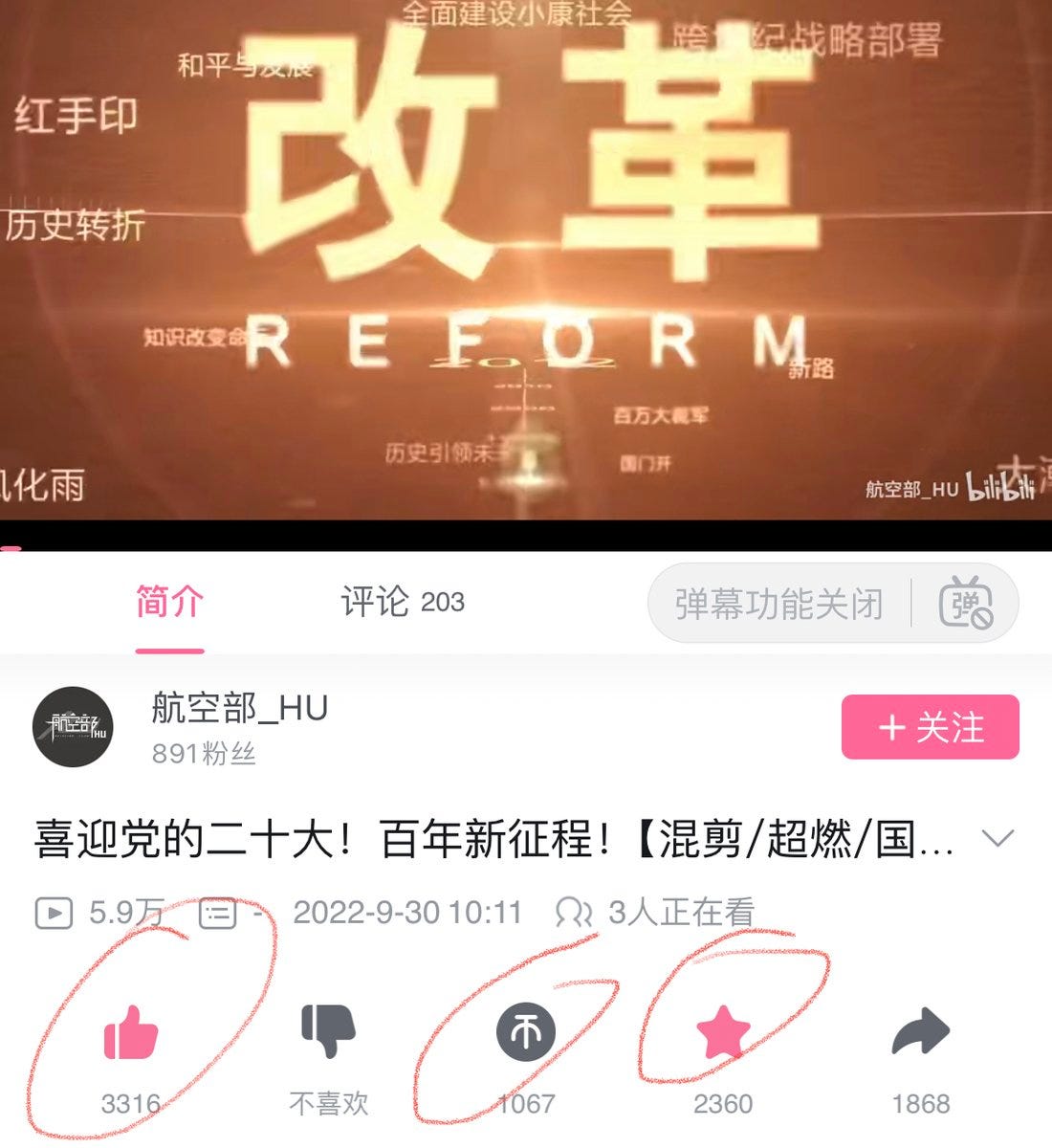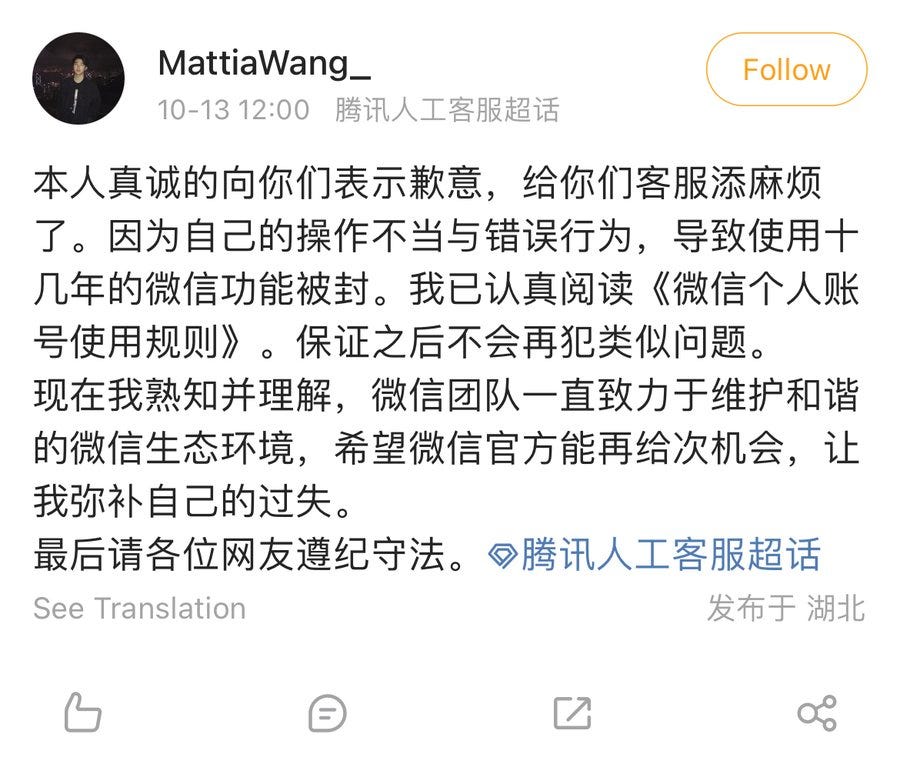What's China censoring on its social media (so far) ahead of the Party Congress?
Ensuring stability on social media is just as important as in real life for China as Xi Jinping steps into his controversial third term as the leader of CCP
What's China censoring on its social media ahead of the Party Congress this Sunday? So far keywords are ranging from political terms like "re-elected" to random internet jargons (一键三连)to anime (Death Note).
Words like “re-elected”(连任) getting censored isn’t hard to understand. Xi Jinping is expected to get re-elected as the leader of CCP during the summit. If you search "re-elected" on Weibo right now, results are heavily filtered. Nothing about Xi. Most are about Biden and American politics.
Earlier this week, Japanese anime Death Note got its pages removed from Douban. Well, what’s an anime have to do with Chinese politics? Speculations have been that people might joke about writing Xi's name in the note, which means killing him, according to the rules of the notebook in the show. Here is a rule page from the note.
Great show. Too bad it’s been censored at least twice now in China.
And then we have “一键三连”. The censoring of "一键三连" (One Button Three Sequences) on Weibo might be a bit difficult to comprehend for people like me who don't spend much time on China's popular video platform Bilibili.
“一键三连” refers to the action of long pressing the like button under a video on Bilibili to like, tip and save it all at the same time instead of pressing three buttons separately.
.
The function itself has no political insinuations. But, at least the speculations have been that, part of the word, “三连” (Three Sequences), could be seen as suggestive of Xi getting elected three times as the leader of CCP. This is what’s believed to have caused the preemptive ban.
The recent censoring had been rather quiet and hadn’t resulted in much turmoil…until today.
All hell broke loose today in the censorship world when a mysterious man hung two banners on a Beijing bridge denouncing China's strict covid control, the autocratic rule of the government and Xi himself.
Censors were quick to take actions in order to contain the spread of the news. Words like "Bridge", "Haidian" (a district in Beijing where the protest took place), "banner" and "slogan" were all censored on Weibo. Even "Beijing", the name of China's capital, has been included.
Despite censorship, many netizens applauded what the man did. So words that have been used to praise him, like "warrior"(勇士), "righteous man"(义士), "brave"/"courageous"(勇敢), etc., all have been censored on Weibo.
Censorship on WeChat is harder to detect. You can't just search a word and see if it's been censored. It’s less town square like than Weibo. But I've seen a ton of people complaining on Twitter and on Weibo today about their WeChat accounts getting suspended after sharing pictures and videos of the protest.
Interesting enough, Weibo reacted to these complaints...by shutting down hashtag "WeChat got suspended" so people don't have to place to discuss it.
What's also interesting is that some people are apologizing to Tencent, WeChat's parent company, on Weibo for their "inappropriate" and "unlawful" actions, in hopes that Tencent would unlock their accounts, showing how politically insensitive many still are in China today, despite tightened internet control. A few examples are posted below.
Context: WeChat is where you live on in China today. It's the super app that you do almost everything in life with. Your family is on it. Your colleagues and clients are on it. Losing access to it could be a horrifying experience, which explains those overly eager apologies.
So far China has done a good job containing the news and its discussions. But people are nonetheless finding new ways to get around the censorship on Weibo. As of right now (Oct 13, 6:40 pm ET), hashtag “I saw it”(我看到了), referring to having seen the videos and picture of the protest before they got scrubbed from the internet, is still available and people are using it to express support and sympathy toward the protester.
But as the Party Congress is getting closer, I’m sure China will only tighten online discussions. What new words they’ll ban next or what new methods they’ll implement remains to be seen.









